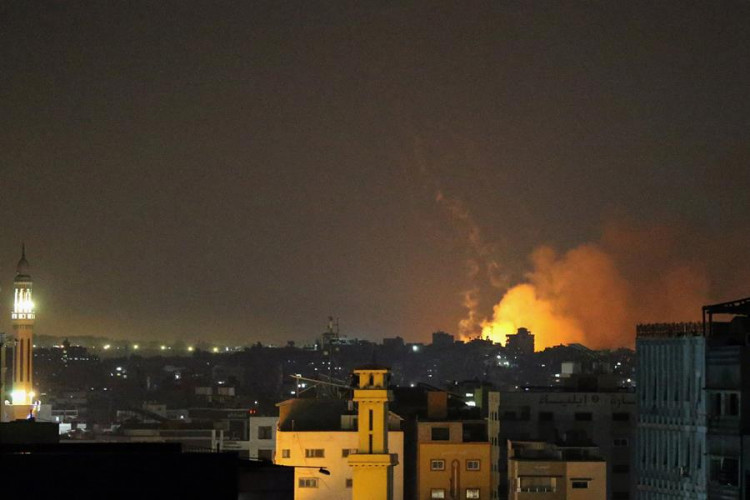An Israeli airstrike targeting a house in the Nuseirat refugee camp in central Gaza resulted in the deaths of at least 27 people, mostly women and children, according to reports from local hospitals. The airstrike occurred as the conflict in Gaza continues to escalate, now entering its eighth month. This tragic incident coincided with a visit from U.S. national security adviser Jake Sullivan, who is in the region to discuss a potential peace plan involving Saudi Arabia's recognition of Israel.
The bombing on Sunday took place as Israeli forces intensified their operations in northern Gaza, where fighting has been particularly fierce. Prime Minister Benjamin Netanyahu's government is currently facing internal divisions over the future governance of Gaza once the conflict ends. Netanyahu has opposed any plans for Palestinian statehood, proposing instead that Israel maintain security control over Gaza in partnership with local Palestinians unaffiliated with Hamas or the Palestinian Authority.
Benny Gantz, Netanyahu's main political rival and a member of the War Cabinet, has threatened to leave the government if a plan is not formulated by June 8 that includes an international administration for postwar Gaza. Gantz's withdrawal would not topple Netanyahu's coalition but would increase his reliance on far-right allies who advocate for more extreme measures, including the "voluntary emigration" of Palestinians from Gaza and the full military occupation of the territory.
The airstrike in Nuseirat devastated a densely populated refugee camp that dates back to the 1948 Arab-Israeli war. Records from Al-Aqsa Martyrs Hospital in Deir al-Balah indicate that 27 people were killed, including 10 women and seven children. The Civil Defense in Gaza later reported that 31 bodies were recovered from the site of the bombing. Another strike in the same area claimed five more lives, according to the Palestinian Red Crescent emergency service.
Israeli airstrikes and ground operations have intensified in northern Gaza, leading to severe humanitarian conditions. The World Food Program has warned of a famine in the region, exacerbated by ongoing blockades and military actions. The Civil Defense reported that strikes near Kamal Adwan Hospital in Beit Lahiya resulted in the deaths of at least 10 people, while in the urban Jabliya refugee camp, residents faced heavy artillery and airstrikes.
As the conflict rages, the death toll continues to rise. According to Gaza's Health Ministry, over 35,000 Palestinians have been killed since the war began following a Hamas attack on Israel on October 7, which left 1,200 Israelis dead and 250 abducted. The humanitarian crisis has displaced around 80% of Gaza's 2.3 million residents, many of whom have been forced to move multiple times within the territory.
Netanyahu's government has faced significant criticism for its handling of the conflict. Thousands of protesters took to the streets on Saturday, accusing the prime minister of prolonging the war to avoid political repercussions for the security failures that led to the initial Hamas attack. Polls suggest that if early elections were held, Gantz, a centrist, would likely succeed Netanyahu, potentially exposing him to prosecution on longstanding corruption charges.
Amidst the ongoing conflict, the Biden administration has expressed growing frustration with Israel's conduct. Recently, the U.S. held up a shipment of 3,500 bombs to Israel, citing concerns over the humanitarian impact of a potential full-scale invasion of Rafah. However, the administration has also moved forward with a $1 billion arms sale, highlighting the complex dynamics of U.S. support for Israel.
Sullivan's visit to the region includes discussions with Saudi Crown Prince Mohammed bin Salman, aiming to negotiate a plan where Saudi Arabia would recognize Israel and assist in Gaza's reconstruction in exchange for a U.S. defense pact and help with a civilian nuclear program. However, this plan hinges on Israel agreeing to a credible path to Palestinian statehood, a proposal Netanyahu has consistently rejected.




